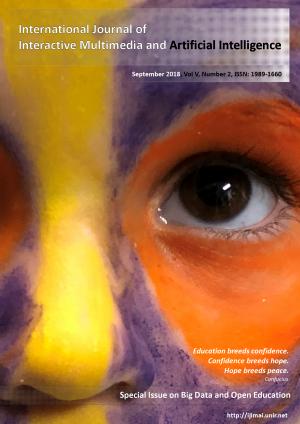- Year: 2018
- Vol: 5
- Number: 2
One of the most well-known requirements in educational settings is the need to know what happens in a course, lesson plan or full academic programme. That is true for any type of education but in particular for Open Education with the multiple dimensions of openness. On the one hand, educators (i.e. teachers, professors, tutors, etc.) and practitioners in Open Education need to reshape the course plan according to the actual features of the learners (e.g., learning styles, motivation, performance, et cetera) and therefore they require real-time analytical information to supervise, assess, adapt and offer feedback to the learners. On the other hand, Open Education offers specific opportunities through online learning using Open Educational Resources (OER) and providing Massive Open Online Courses (MOOCs). The online environments and platforms provide huge amount of data on all activities (a huge Excel sheet, labelled as Big Data). More importantly, Open Education with open teaching and learning is now commonly shaped by a learner- centred approach that pushes the learners to be the driver of their own learning. That is, learners require awareness to self-assess their progress along the course and make decisions for their next steps. In short, Open Education is now an always changing process that requires effective support for the decision making process by the educators and the learners.
Open Education can benefit from Big Data and Learning Analytics used and analysed in the right way as well as Open Education can be the enabler for a broader implementation and acceptance of Big Data and Learning Analytics, again if realized in the correct way. Recent research shows the upcoming relevance of Big Data in Open Education through decision support systems aiming at learners and educators, usually representing the information with information visualization techniques and dashboards. There are a lot of on-going research projects related Learning Analytics and Open Education that are producing interesting results to improve learning quality and to achieve societal impact. In this special issue, we present just a selection of fine papers focused on analytics (Moreno et al.), an intelligent assistant, higher education, vocational education, employment, gamification, augmented reality and Open Educational Resources. We hope that the reader enjoys as much as we did, as editors of this double-blind, peer reviewed compilation.
Electronic File Download
IJIMAI20185_2.pdf5.53 MB

